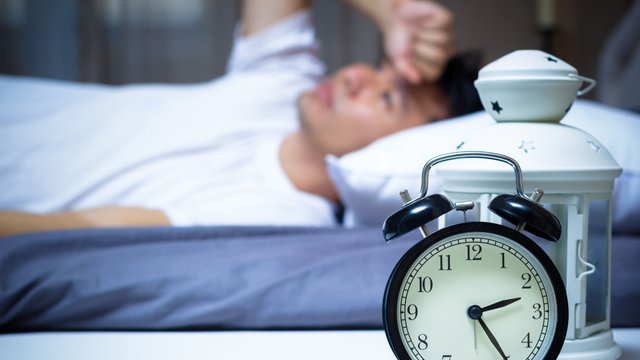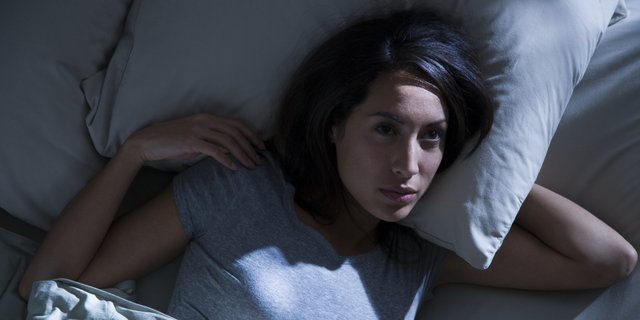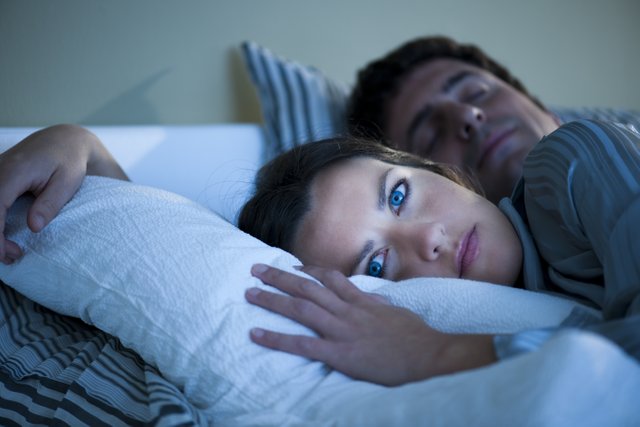How to Overcome INSOMNIA

1. Avoid Light While Sleeping
Light greatly affects the production process of the hormone melatonin. Bright light will hinder its production process, and the absence of light will drive its production process.
Tip: Turn off the TV, computer, or other light source equipment one hour before bedtime. Cover with a dark cloth all light source equipment that can not be turned off.
2. Avoid To Keep Looking At Your Clock
If you continue to glance at the clock late at night, your sleep will be tormented. You will constantly worry about the rest of your sleep before your other busy day begins. If you're one of those people, then you should place the clock in a drawer, under the bed, or turn it in the direction that goes against your distance.
3. Avoid Caffeine 9 Hours Before Sleeping 15 Tips How To Overcome Insomnia For Quick Sleep
Coffee in the morning is good for some people. But just before bedtime, you need to avoid to eat foods and beverages that contain caffeine. Reduce also in eating chocolate, cola, tea or even decaf coffee.
Tips: pain killers and also the body-lowering pills also contain caffeine, so you should also avoid it.

4. Set Sleep Schedule
Arrange for your same day-to-day and wake-up schedule, including weekends. This routine will keep your body and brain in the wake cycle and go to a healthy sleep. In time, you will be able to fall asleep well at night.
Tip: Get a bright light for 5 to 30 minutes as soon as possible after you wake up. Light is the strongest regulator to wake you from sleep.
5. Regular Sports
Regular exercise has been shown to improve sleep quality, as long as you do not get too close to bedtime. The energo you get after exercise can keep you awake. Give the distance between you finish exercising with bedtime between 3-4 hours.
Tips: exercise or light exercise such as yoga, tai chi, and similar exercises may be done before bedtime.
6. Neutralize the Sound
Drops of taps, barking dogs, sound of vehicles will eliminate most of your sleep time.
Tip: Resist the sound in a more organized and calm voice, such as fan sounds, air conditioning, or other soothing sounds. You can also use ear plugs to overcome them.
/cdn.vox-cdn.com/uploads/chorus_image/image/45617666/shutterstock_231755569.0.0.jpg)
7. Do not Smoke
Nicotine is also a stimulant, as well as caffeine. Nicotine will make you more awake and can worsen insomnia.
Tips: To simplify your quit smoking plan, you'll sleep a little better if you smoke less than usual and have stopped doing it for at least four hours before you go to bed.
8. Keep Your Pets Out of Bed
Movement of dogs and your pet cat will prevent you from getting a good night's sleep as desired. They can also carry lice, dust, feathers, and other allergic triggers to your bed.
Tip: Consult a veterinarian or an animal trainer, how to keep your pet happy and want to sleep in its own place.
9. Relax Your Mind Before Sleep
Relieve emotion and your mind about an hour before bed. Read something light, listen to music, or take a warm bath to soothe your mind.
Tips: This ritual can also be done 10 minutes before bedtime when your sleep time is getting narrower.

10. Use Pillow To Relieve Back Pain
A mild back pain may not awaken sleep, but it will greatly disturb your deep sleep. The easy solution is to place a small cushion between your legs while sleeping on the side, the point to align the hip and reduce the pain in the back.
Tip: While sleeping on your back, place a small pillow under your knees to reduce back pain during the night.
11. Place the Neck in a Neutral Position
If you wake up with a stiff neck, blame your pillow. Sometimes you use a pillow that is too thick or too thin. Your pillow should be the right size to support your neck in a neutral position. To sleep sideways, your nose should be parallel to your body center. Avoid sleeping with your stomach, because it will wrap your neck.
12. Clean Beds Regularly
Allergies that can cause sneezing, runny nose, or itching can cause your sleep to be disturbed, and that may be because your bed that is over time will be filled with dust, lice and all sorts of other allergens. Clean your bed for a period of time on a regular basis.

13. Immediately Consultation to the Doctor 15 Tips on How To Overcome Insomnia For Quick Sleep
When the severity of your insomnia is still relatively low, then you can still handle it with these tips. But if for a month your insomnia still does not heal, it's time to check yourself and find out what happens to your body. Insomnia may be just a symptom of a more serious illness. Chronic insomnia needs an evaluation from a local doctor.
14. Use Sleep Drugs Appropriate Prescription Doctor
You may be tempted to use sleeping pills when your sleepiness has not arrived in the middle of the night, but be careful in using it. Sleeping pills can make you addicted and have annoying side effects. Ideally, sleeping pills are used in a short period of time, not to be a daily lifestyle.

Great article about sleeping!
Thanks for the useful tips as I am a person who can sleep while standing in a moving vehicle, now I can sleep absolutely anywhere :)
thank you ... i'm very happy if my post is useful for you ...: D
Many people have said this question as to how people were talking in sleeping country. But it did not match. Many people say, this is actually a disease. But really so! Why are people sleeping in the sleep? The current idea, because of the dream, people speak in sleep. Many times it rattles it. But there is always a clear conversation. Mild sleep or deep sleep; People can talk in any situation. But from the status of 'Non-Rapid Eye Movement' or the situation from the awakening to the 'Rapid Eye Movement', the tendency to speak in sleep increases when people go forward.
But why are people talking about this sleeping situation?
This is not the case because of just dreaming. There are many reasons behind this. According to the National Sea Foundation, this tendency is seen due to anxiety, depression, sleep loss etc. Sometimes alcohol influences can also work. Besides, there is a tendency to speak in sleep, although there is severe febrile infections. Many people do this because of hereditary reasons. But the most important aspect is 'Night Terror'. If there is a phobia in sleep for some reason, then this tendency may also be created. In that case it is important to find the right reason.
This is not usually a disease. But if sleep disruption happens then there may be many physical difficulties. It is advisable to consult a doctor. If there is a phobia, if the advice of psychologists is taken, then the main problem will be eliminated.